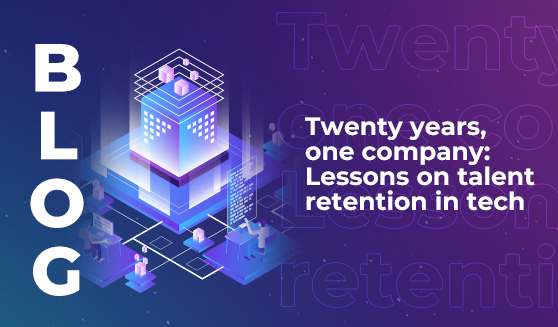
Leon Winkler (Senior Director of International Events at Ubisoft HQ) has been with his company for nearly 20 years. In the wider tech industry talent retention is a major challenge, with the average employee tenure estimated to be around three years.
So when we speak with a tech leader who’s stayed in one place for much longer, we’re always intrigued: what is it that enables them to grow their career within that business, and what could other companies learn from this?
Leon’s coming to LEAP 2025 to share his insights and experiences around the intersection of gaming events, diversity, and mainstream culture. And we caught up with him ahead of the event to dig into his perspective on a vibrant career with one global video games publisher.
You must have seen a lot of change throughout your time at Ubisoft. Could you share some of the major gaming industry shifts you/the company have worked through?
“I started in the year that the Nintendo Wii was launched and worked on the marketing and PR for our games Red Steel, Rayman Raving Rabbids and Just Dance. While gaming was already a multi-billion dollar industry back then, the arrival of the Wii with its mainstream appeal opened the market up and helped with people embracing gaming even more.
“The year after I started we launched the first Assassin’s Creed game which helped our company soar to heights we could only dream of. These were great times of growth and unparalleled success.
“I remember working on a song to promote the local launch of Assassin’s Creed and get us some mainstream publicity. It was a great time to work in the industry, as it felt like we were pioneering and creating the standards we work with today.
“This makes me feel old, but when I started Social Media was not at all what it is now and brands creating their own content was not really a thing. With platforms like Twitter / X , Instagram and YouTube at our disposal, this changed – and allowed me to use my expertise to create a TV show and use this to build up content for our local market.
“I started creating bespoke video content promoting our games (like this one), vlogs (like this one), taking the camera with me to press tours, and documenting events we produced ourselves.”
And have you witnessed a shift in representation and diversity in the gaming space?
“I’m happy to see that the need for more representation and diversity is being embraced by our industry – which is great! One of the reasons for me moving into the industry after my TV adventure ended, was because of representation.
“I remember doing editorial research for my TV show one day, and reading an interview in one of those American Hiphop magazines like Source or Vibe. The interview was with a fellow brother working for one of the other big publishers talking about the work he did working on E3 and other gaming events. While at that time I had no interest in going into gaming, I do distinctly remember thinking: that sounds very cool.
“Before reading this interview, I wasn’t even aware of people working in gaming events, let alone people who look like me. That is why I believe representation is so important – as I think that if that seed wasn’t planted, I would never have proactively gone after openings in the industry.
“This is also one of the reasons why I co-founded the Black Game Pros initiative at Ubisoft (and in the industry) to foster and promote more diversity in our industry.”
What has enabled you to dedicate yourself to building your career with one video game publisher?
“One of the main reasons I've been able to dedicate nearly two decades to Ubisoft is the company’s commitment to fostering an environment where employees can truly be themselves. Ubisoft encourages authenticity, which is something I've found to be incredibly rare and invaluable.
“In my experience, being able to bring your whole self to work, without feeling the need to conform to a certain mold, is crucial for long-term career satisfaction and success.
“Another key factor is the trust and autonomy Ubisoft places in its employees. From the very beginning, I've been given the freedom to experiment, innovate, and drive projects that align with both my professional goals and the company's vision. For instance, leading the production of Ubisoft Forward, our flagship event, has been a testament to the trust the company has in me and my team. This level of trust has allowed me to grow, not just as a professional, but also as a leader.”
What do you think other companies could learn from Ubisoft's approach to talent development?
“The importance of creating a workplace culture that values authenticity and trust. When employees feel seen, heard, and trusted, they are more likely to stay, contribute meaningfully, and grow alongside the company.”
Thanks to Leon Winkler at Ubisoft. Join us at LEAP 2025 to learn more from Leon and network with top gaming industry leaders. Register now.








